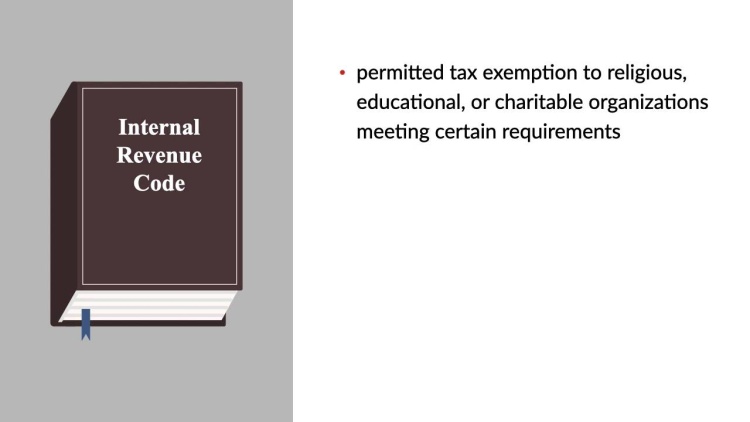Bob Jones University v. United States
United States Supreme Court
461 U.S. 574 (1983)

- Written by Robert Taylor, JD
Facts
Bob Jones University (the university) (plaintiff) was a Christian-fundamentalist educational institution and a federal tax-exempt charitable organization. The university’s religious beliefs were reflected in its policies, which prohibited interracial dating and marriage among its students. In 1970, the Internal Revenue Service of the United States government (government) (defendant) issued a revenue ruling requiring private schools to have admissions policies that did not discriminate based on race in order to qualify for charitable tax-exempt status. The government determined that the university did not meet the requirements of the revenue ruling and revoked the university’s tax-exempt status. The university filed suit against the government in the United States District Court for the District of South Carolina, seeking a refund of taxes that the university had paid pursuant to the revenue ruling. The district court entered judgment for the university, ruling that the revocation of its tax-exempt status was not authorized under federal tax law and violated its First Amendment rights under the Constitution. The government appealed to the United States Court of Appeals for the Fourth Circuit. The court of appeals reversed, ruling that the government had not erred in limiting the tax exemption to schools with a charitable purpose. The court of appeals found that the university had not met this requirement because its racially discriminatory policies were unconstitutional and in violation of public policy and therefore were not charitable. The court of appeals also rejected the university’s argument that the government had violated the University’s First Amendment rights by denying it tax-exempt status. As a result, the court of appeals remanded the case to the district court with instructions to dismiss the university’s claim for a tax refund. The United States Supreme Court granted certiorari.
Rule of Law
Issue
Holding and Reasoning (Burger, C.J.)
Dissent (Rehnquist, J.)
What to do next…
Here's why 911,000 law students have relied on our case briefs:
- Written by law professors and practitioners, not other law students. 47,100 briefs, keyed to 997 casebooks. Top-notch customer support.
- The right amount of information, includes the facts, issues, rule of law, holding and reasoning, and any concurrences and dissents.
- Access in your classes, works on your mobile and tablet. Massive library of related video lessons and high quality multiple-choice questions.
- Easy to use, uniform format for every case brief. Written in plain English, not in legalese. Our briefs summarize and simplify; they don’t just repeat the court’s language.





